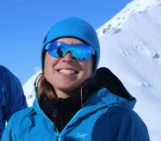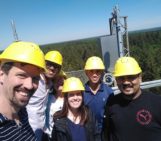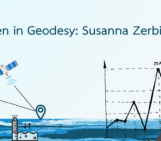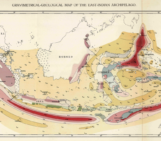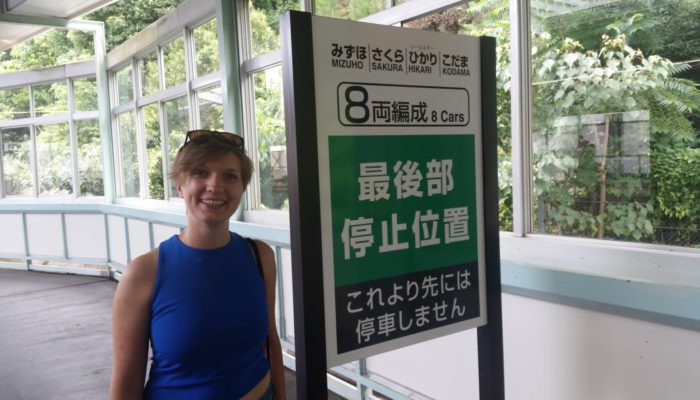
We hope that you have enjoyed reading about the new division president and division deputy president. But there are even more people behind the scenes that contribute to the development of the Geodesy division. Today we are going to introduce you to one of the new science officers: Anna Kłos. We asked her also a few questions and despite of being on maternity leave she was able to answer them. Find out what she is working on and what she is doing in her free time below. Enjoy!
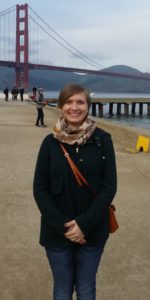 What is your position within the EGU and/or the Geodesy Division?
What is your position within the EGU and/or the Geodesy Division?
I serve as a Science Officer in the Geodesy Division.
What are your duties as Science Officer?
My duties are not strictly specified. I am here to help Annette in planning the upcoming EGU GAs within G Division, which includes for instance scientific sessions.
What was your motivation to say yes, when Annette (editor’s note: Geodesy division president) asked you to be a Science Officer within the Geodesy Division?
I felt really honored that I was chosen by Annette and saying yes was a natural choice for me. I am very glad that I can serve with my knowledge and experience in the G Division.
What is the most exciting part of this job for you?
Observing how EGU works from behind the scenes.
Give us a quick overview of your professional career so far!
I graduated from Military University of Technology (MUT) in Warsaw, Poland, in 2012. I started my PhD immediately and defended in 2016. My topic concerned noise analysis of GPS position time series, aiming at reliable velocities of permanent stations. I was granted with habilitation in 2019 for a series of papers describing analyses of functional model of geodetic time series accounting for their stochastic character. I am working now as an associated Professor at the MUT. During my professional career I visited and worked at several European institutes/universities where I learned a lot about observing the Earth system.
Currently, what are your research topics?
I am currently working on GPS sensitivity to various phenomena. This is a very broad topic and basically covers a lot of geophysical phenomena and signals that GPS is able to register (or observe). It kind of fits the topics I was working on up to this moment, since the entire modelling of GPS position time series still needs to be done, but also includes many new aspects, which I haven’t touched yet.
Apart from scientific exchange, what is the most important aspect of EGU to you?
Meeting the entire community, keeping in touch with what people are working on and, also, maybe this is the most important, receiving a feedback on my research.
Do you have any hidden talents or hobbies?
No talents I am aware of. Maybe they are too hidden… 😊 For hobbies, I love traveling, meeting foreign cultures and different people. The world is so beautiful. For me, this is also a very positive aspect of work as a researcher, we travel a lot, so I bring together my passion which is work and my hobby which is travelling.
What is your favorite food?
Do I really have to choose only one…? 😊
Are you a coffee or tea person?
Definitely a coffee person. Espresso, please 😊
Where are you going for your first holiday after the pandemic is over?
Italy or Switzerland.
Do you have a favorite place in Vienna?
Yes! Definitely Wiener Prater with many attractions and delicious food. I felt in love with Wiener Schnitzel and Hintere SchweinsStelze you can eat there. I ate both for the first time during my first EGU in 2012. When I am in Vienna, I always try to find some time and grab them.
In the beginning we mentioned that we will introduce you to one of the science officers today. So, there is more than one person with this “job description” and we will present you the second science officer in the coming weeks. Stay tuned.

